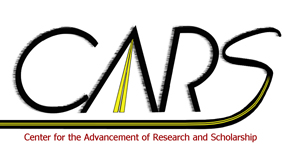Lightning Round: Does Distributing Chocolate in Class Boost Instructor Course Ratings?
Location
Moakley Auditorium
Start Time
9-5-2018 10:50 AM
End Time
9-5-2018 12:00 PM
Description
Can instructors boost their ratings by offering students chocolate before they completed end-of-semester course evaluations? A previous study suggests “yes.” In their examination of factors biasing college course evaluations, Youmans & Jee (2007) concluded that offering students chocolate before they completed end-of-semester evaluations resulted in more positive evaluations for the instructor. Despite the popular implications of this study, this “chocolate effect” has yet to be replicated. The latter is surprising given some considerable shortcomings in the original study and given the importance of replicating scientific studies. The present study tested the “chocolate effect” using a larger and more diverse sample than the one obtained in the original study. The present study also used qualitative methods to examine student perceptions about being offered chocolate from their instructors. It is important to examine such student attributions because they may influence their overall perceptions of the instructor in positive or negative ways.
Lightning Round: Does Distributing Chocolate in Class Boost Instructor Course Ratings?
Moakley Auditorium
Can instructors boost their ratings by offering students chocolate before they completed end-of-semester course evaluations? A previous study suggests “yes.” In their examination of factors biasing college course evaluations, Youmans & Jee (2007) concluded that offering students chocolate before they completed end-of-semester evaluations resulted in more positive evaluations for the instructor. Despite the popular implications of this study, this “chocolate effect” has yet to be replicated. The latter is surprising given some considerable shortcomings in the original study and given the importance of replicating scientific studies. The present study tested the “chocolate effect” using a larger and more diverse sample than the one obtained in the original study. The present study also used qualitative methods to examine student perceptions about being offered chocolate from their instructors. It is important to examine such student attributions because they may influence their overall perceptions of the instructor in positive or negative ways.
